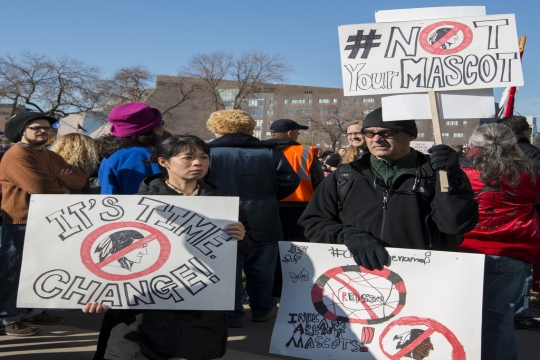When I think of Indian reservations, and the laws that govern them, the first things I think about are always casinos. Driving down I-95 from Jacksonville to Miami each year to visit my relatives, we would always pass huge billboards advertising a casino with a strange name to me—Miccosukee—that implored us to stop in on our way down.
I’ve been fascinated by geography from the time I was young, so on one of these trips, maybe when I was 9 or 10 years old, I asked my parents why anyone would place a casino so far outside of the city. They explained to me that, while the State of Florida had outlawed gambling (though some might say it still exists today), those laws did not apply to Indian tribes, and so many Indian tribes used the casinos to make money.
That billboard was how I imagined Indian reservations for most of my childhood: a place on the outside of the Everglades that had once been swarming with alligators, but was now a gargantuan casino. Indian tribes had the fortune of being freed from the government’s rules, and as a result, they could make a lot of money.
It wasn’t until I got to college and visited Indian reservations around New Mexico that I saw a side of Indian reservations beyond casinos. At a Navajo cultural center, I saw a community not unlike my home Temple, concerned with preserving and promoting its culture amidst a changing society. And I saw a community that was a bit skeptical of the way in which federal and state governments have left Indian tribes alone, able to open casinos but often missing the support from the government that so many other American communities receive.
This lack of government support extends to law enforcement, where a series of court decisions have limited the ability of Indian tribes to prosecute anyone who is not a member of their tribe, even if a crime was committed on reservation land. In particular, domestic abusers and committers of gender-based violence have not had to face justice.
In October, the public radio podcast, State of the Re:Union, ran a profile of the Pascua Yaqui tribe in Arizona, with a spotlight on how powerless the tribe was in dealing with non-tribe members who committed domestic violence. The tribal police talk of the common practice of driving domestic abusers to the Circle K convenience store at the edge of the reservation and telling them not to come back. In short, the law left survivors of domestic abuse were powerless to stand up to their abusers.
Yet the Pascua Yaqui have recently been able to arrest and charge non-tribe members with domestic violence crimes. Thanks to a provision in the 2013 Violence Against Women Act, which we advocated for here at the RAC, tribal justice systems are now slowly getting the ability to try non-tribe members for crimes committed on the reservation.
The Pascua Yaqui tribe is part of a pilot program for using tribal justice systems to try crimes committed on reservation land, but the program will be expanded across the country next month. Though it might face more tests in the courts, the program will allow tribal women and men the protection they deserve against domestic abuse, and we’re proud to have helped pass the law that put this program into place.
Related Posts
Image

Native American Heritage Month: Continued Support for the Indigenous Population is a Necessity
November 15, 2022
In November, we celebrate Native American Heritage Month. Unfortunately, much of North America is just beginning to recognize the contributions of Indigenous peoples.
Concern for Safety of Protesters at Standing Rock
December 2, 2016
Yesterday, Rabbi Jonah Pesner, Director of the Religious Action Center, sent letters to U.S.
Image

The Courts May Offer a Path to Change Offensive Trademark Names and Mascots
October 19, 2016
Despite having been banned by the NCAA in 2007, the University of Illinois at Urbana/Champaign’s former mascot, “Chief Illiniwek,” still held significant relevance when I moved to campus four years later.
